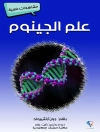This book collates the basic and advanced concepts of plant biotechnology and genomics along with the future trends. It discusses the combination of conventional breeding techniques with genomic tools and approaches leading to a new genomics-based plant breeding technology supporting crop plants that respond better to biotic and abiotic stress, and pathogen attacks. Plant genomics play an important role in developing more efficient plant cultivars which are essential for the neo green revolution needed to feed the world’s rapidly growing population. Plant genomic data is being utilized in genetic engineering to ensure that better and resilient varieties of crops are available ensuring food security. This book is of immense interest to teachers, researchers, crop scientists, capacity builders, and policy makers. Also, the book serves as additional reading material for undergraduate and graduate students of agriculture, biotechnology, genomics, soil science, and environmental sciences. National and International agricultural scientists and policy makers will also find this to be a useful read.
Jadual kandungan
Chapter 1. Introduction, Scope and Applications of Biotechnology and Genomics for Sustainable Agricultural Production.- Chapter 2. Structure and Organization of Plant Nuclear Genome.- Chapter 3. Transgenesis in Plants: Principle and Methods.- Chapter 4. Genetically Modified Crops and their Applications.- Chapter 5. Transcriptomics in Plant.- Chapter 6. Molecular Breeding and Marker Assisted Selection for Crop Improvement.- Chapter 7.Bioinformatics in Plant Genomics for Next Generation Plant Breeding.- Chapter 8. Whole Genome Sequencing of Plants: Past, Present and Future.- Chapter 9. Model Plants in Genomics.- Chapter 10. RNA Interference Technology in Plants: Mechanisms and Applications in Crop Improvement.- Chapter 11. Use of Genomics to Improve Stress Tolerance.- Chapter 12. Genetics of Plant Organelles: Plastid and Mitochondrial Genomes.- Chapter 13. DNA Barcoding in Plants: Past, Present and Future.- Chapter 14. Advances in Epigenetics for Crop Improvement and Sustainable Agriculture.- Chapter 15. Ethical Aspects and Public Perception on Plant Genomics.
Mengenai Pengarang
Professor Ram Lakhan Singh is presently holding the position of Vice-Chancellor of Nilamber-Pitamber University, Medininagar, Jharkhand. He has wide experience of holding several administrative and academic positions such as Head; Dean, Faculty of Science; DSW; Director etc. in his 34-years career as teacher, researcher, and academic administrator of which more than 19 years were spent as professor of biochemistry. He has published 86 quality research papers, 10 popular articles, and 19 book chapters and written/edited 8 books. He is office bearer and life member of several learned societies. Professor Singh has been awarded IUTOX Senior Fellowship by the International Union of Toxicology at Montreal, Canada. He has been admitted to the Fellowships of the Society of Toxicology, India, and Academy of Environmental Biology, India.
Dr. Sukanta Mondal is currently working as Principal Scientist, ICAR-National Institute of Animal Nutrition and Physiology, Bangalore, India. He completed post graduation from National Dairy Research Institute and Ph.D. from the Indian Veterinary Research Institute, Bareilly. He has 24 years of research experience in reproductive genomics. He has 134 research publications, written 13 book chapters, and edited 3 books published by Elsevier. He is editor-in-chief of Current Research in Poultry Science. Previously, he was associate editor of the American Journal of Biochemistry and Molecular Biology, Asian Journal of Biotechnology, and Asian Journal of Cell Biology and Biotechnology. He was awarded with G. P. Talwar Midcareer Scientist Award, DBT Overseas Associateship Award, and ISSRF Young Scientist Award.
Dr. Akarsh Parihar is presently working as Professor and Head of the Department of Genetics and Plant Breeding, AAU, Anand, and he earned his Ph.D. in genetics and plant breeding from Anand Agricultural University. His area of research is focused on distant hybridization, molecular breeding, genomics, transcriptomics, plant tissue culture, and genome editing. He has 17 years of research and teaching experience and guided 21 students (7 Ph.D. and 14 M.Sc.). He has published 30 research papers and developed improved lines in tomato for lycopene content, enhanced resistance for tomato leaf curl virus and shelf life, desi cotton for fibre quality, mustard for aphid resistance, custard apple for aroma and shelf life, and cucumber for leaf miner and cowpea for YVMV resistance through distant/wide hybridization.
Mr. Pradeep Kumar Singh is presently working as Assistant Professor in the Department of Biochemistry at Dr. Rammanohar Lohia Avadh University, Ayodhya, since 2011. His research interest is bacterial decolorization of textile dyes. Mr. Singh qualified several national exams such as CSIR, UGC, and NET in life sciences; ASRB, ICAR, and NET in agricultural biotechnology; and GATE in life sciences. Recently, Mr. Singh authored one book entitled Recent Advances in Decolorization and Degradation of Dyes in Textile Effluent by Biological Approaches, CRC Press. He has published eight research papers in peer-reviewed journals and nine book chapters by international publishers such as Springer Nature and Elsevier.












